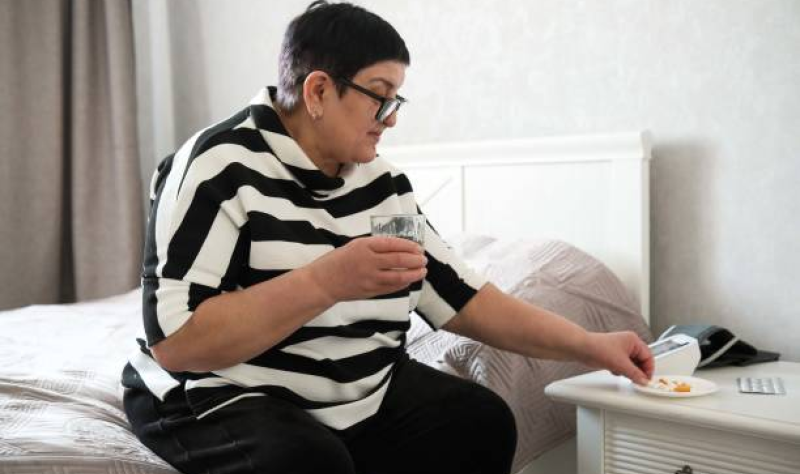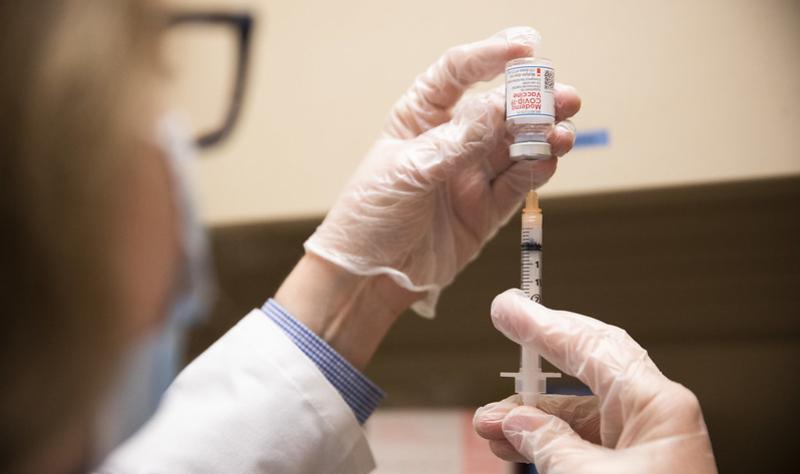Israeli drug candidate achieves 93% COVID count reduction in hamsters’ lungs
Israeli drug candidate achieves 93% COVID count reduction in hamsters’ lungs The Times of Israel

Scientists in Israel say their new drug candidate for COVID shows “great promise,” after it reduced the virus count in hamsters by 93 percent.
The drug works by sabotaging the virus’s attempts to create a good environment for it to thrive, and draws on two decades of research at the Hebrew University.
Isaiah Arkin, a biological chemistry professor, said that the approach his team is using has potential for new and emerging coronavirus variants, and for a broad range of viruses beyond COVID-19, including influenza, Zika, West Nile, and hepatitis B.
In an interview with The Times of Israel he discussed a new experiment assessing the potential of the as-yet-unnamed drug candidate, saying: “We infected hamsters, which are very good for testing COVID-19 responses, with the virus. We gave eight of them our oral drug candidate and gave eight of them a placebo. After four days we ‘sacrificed’ the animals and measured the amount of virus in their lungs.
“We compared the virus count of those who took the drug to those who took the placebo, and found it was some 93% lower, which is a very impressive result, indicating great promise. What we’re doing now is optimizing the compound and raising funds to complete pre-clinical studies in humans,” Arkin said.
“At the same time, we’re looking to use our approach for other viruses, and are making some progress with influenza.”

Illustrative image: Hospital staff in the coronavirus ward of Ziv Medical Center in the northern Israeli city of Safed on September 22, 2021. (David Cohen/Flash90)
The hamster research was conducted recently by an assessment team at the pharma research company Evotec, not by Arkin’s lab. It has not yet been peer-reviewed — though the general principles of his approach have been covered in various peer-reviewed journal articles. Arkin said that he hopes to start human trials for the coronavirus within a year.

Isaiah Arkin, biological chemistry professor at Hebrew University (courtesy of Hebrew University)
Over the years Arkin’s team has contributed to a growing understanding of the importance to viruses of regulating their levels of acidity and salinity, and that of their surroundings in the body of their host.
“Given that this regulation is important to the virus, the idea is that if you inhibit the creation of these optimum surroundings, you inhibit the virus,” he explained. “There was limited interest in this from a practical point of view, but when the pandemic started suddenly there was great interest in viruses.”
At that point, he established a startup, ViroBlock, with the help of Yissum, the Hebrew University technology transfer company.
Arkin, now ViroBlock’s CEO, said: “We quickly decided to capitalize on our understanding and churn out molecules that inhibit the virus’s ability to regulate its acidity and salinity and that of its surrounding, which is what brought about the current drug candidate.”
He added: “Our approach enables us to rapidly identify targets in a new viral threat or variant, develop inhibitors against it, and determine the resistance potential of the virus against the new drug, all at an unprecedented pace.”



